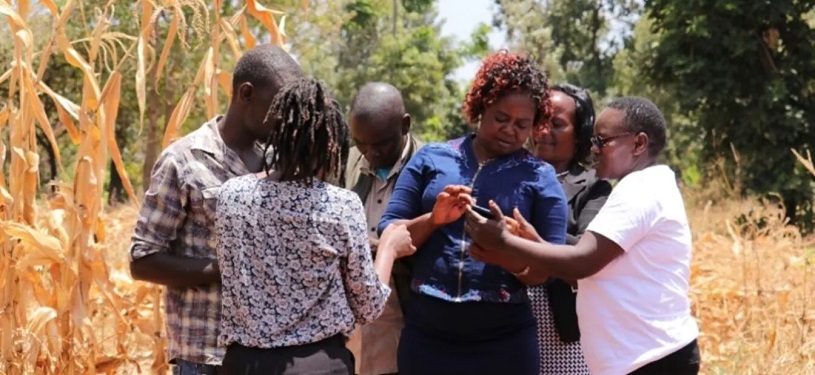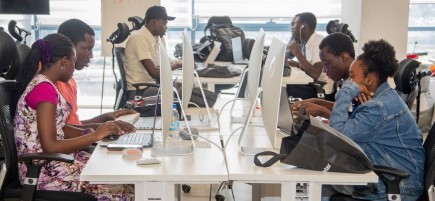
09.01.2025
Harnessing the power of AI to improve harvests
Young software developers in Kenya and Uganda are working on AI-based recommendations for farmers. GIZ is providing advisory support.
Kenya is home to around 7.5 million smallholder farmers, who rely on weather and crop forecasts to help them respond to the extreme weather events that now occur with greater frequency due to climate change. ‘Farmers need the right information at the right time,’ says Leonida Mutuku. She leads an AI team at the Kenyan Local Development Research Institute (LDRI) and has developed an early warning system. ‘AI tools can identify the causes of plant diseases or nutrient deficiencies and recommend appropriate action.’
Collecting data from 1,500 farms
That involves collecting a huge amount of locally differentiated data. Leonida Mutuku asked farmers to work with her on the project by uploading photos of their plants using an app and by providing information about what they are cultivating and whether they use fertilisers or pesticides. Around 1,500 farms took part. The developer and her team also analysed satellite photos. Using the data, they developed an AI-based app that estimates crop yields, identifies plant diseases and recommends the use of fertilisers if needed. This information is made available to farmers via WhatsApp.
In 2021, the LDRI teamed up with the Deutsche Gesellschaft für Internationale Zusammenarbeit (GIZ) GmbH. Thanks to this collaboration, it was able to develop a business plan for selling its soil and crop data to seed distributors, banks, government agencies and supermarket chains and therefore make its early warning system financially viable. Through the FAIR Forward initiative, GIZ promotes the use of geodata and AI in the agricultural sector and supports young developers and startups in both Africa and Asia. One example is the start-up M-Omulimisa in Uganda, which uses AI to help farmers estimate the likely size of their coffee harvest. Farmers can use forecasts of this kind to apply for loans and make financial plans.
Open access
The AI solutions developed through FAIR Forward remain ‘open source’, which means that anyone who wishes can access and copy them. In the case of LDRI’s early warning system, both the algorithm and the initial dataset are publicly available. Leonida Mutuku and her team are now planning to build a chatbot that will automate communications with farmers.


